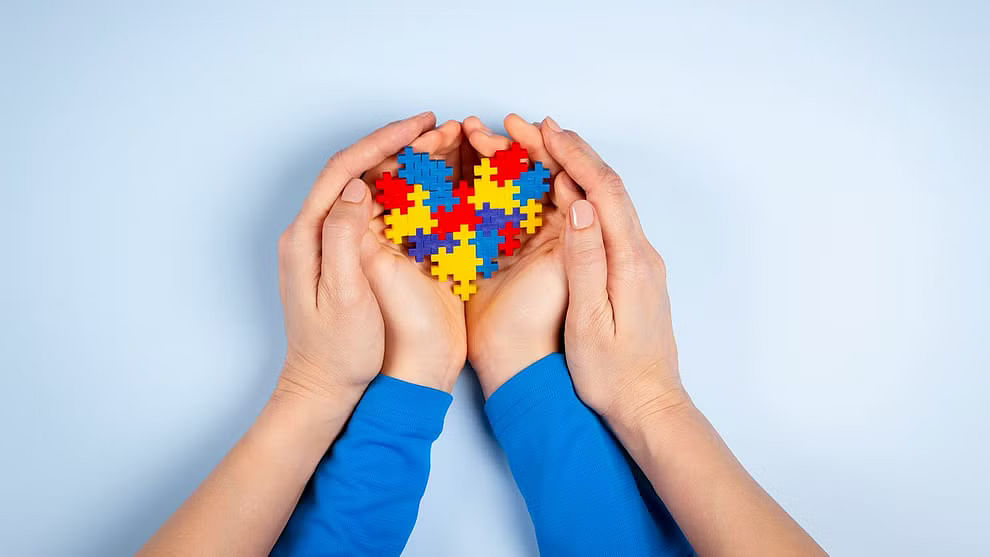
Playing on the desperation of parents are wellness and therapy centres—together constituting the big autism circus—I am saying this mindfully and with no disrespect to parents of children with autism or autistic individuals themselves.
Credit: iStock Photo
“I am considering stem cell therapy for my son. I am confused and very nervous about the side effects or adverse effects. Any inputs?” This query, found in one of the many autism parent groups on social media, is increasingly becoming common as young parents of children diagnosed with autism are desperate to ‘normalise’ or even ‘cure’ their children.
The incidence of autism has seen a steady increase, currently estimated at one in 67 people (according to a Nimhans study) in India; roughly 1.5% of children born fall somewhere on the autism spectrum.
Neurologists, developmental paediatricians, and psychiatrists agree that stem cell therapy, as it is practiced now, offers no benefits for autism, or for that matter, any human disease. The Indian Council of Medical Research (ICMR), in its report ‘Evidence based status of stem cell therapy for human diseases’, has explicitly said that it should not be offered as a standard or routine therapy to autistic individuals. But that has not stopped a few doctors from promoting it as a cure for autism and a lot of parents from spending lakhs, sometimes up to Rs 70 lakh, on it. It is as alarming as the increasing incidence of autism.
Dr Vykunta Raju, professor of paediatric neurology at Indira Gandhi Children’s Institute, Bengaluru, says: “There is no evidence that stem cell therapy helps autism, ADHD, or cerebral palsy. But parents, who are desperate to help their children, are swayed by testimonials on social media, which are very easy to make and propagate.”
Playing on the desperation of parents are wellness and therapy centres—together constituting the big autism circus—I am saying this mindfully and with no disrespect to parents of children with autism or autistic individuals themselves.
I followed one such parent, Seema (name changed), as she launched on a quest to ‘cure’ autism in her 12-year-old son.
Before we go any further, autism is a neurodevelopmental disorder with no known ‘cures’ because it is not a disease. This is what doctors and experts will tell you. There are therapies and techniques to make autistic individuals independent and help them reach their full potential exactly like we help ourselves to get educated, learn skills, and thrive.
After seven years of careful consideration, pouring over thousands of pages/websites of literature on stem cell therapy, which abound on the Internet, complete with testimonials and disclaimers, the mother convinced her software engineer husband to travel all the way to Panama for the treatment. Why not in India? There are doctors offering stem cell therapy for autism in Mumbai and Bengaluru. For one, it is not legal in India. But that wasn’t the mother’s primary concern.
“The review is not good. Parents have not found any improvement in their children despite spending lakhs on treatment,” she told this author. She is right about the cost and the ineffectiveness of the treatment, as we checked with other parents and experts.
A parent of a 12-year-old autistic girl in Bengaluru said her child developed seizures post-stem cell therapy. Though there is no evidence that the therapy caused the seizure disorder, there is no evidence to disprove it either.
Stem cell as a therapeutic option for human diseases is “promising,” not proven as per the ICMR research paper.
What makes Seema sure the Panama treatment will work? “There are reviews and testimonials by parents who have tried.” Have there been any case studies of complete ‘remission?’
“No. But children’s eye contact has improved. They are showing improvements in learning,” she insisted. (Autistics often lack eye contact, would not play peek-a-boo, and sometimes lack pre-learning behaviours such as sitting tolerance and joint attention.)
Still, isn’t it a huge risk financially and emotionally that she is taking? “Anything to improve my child’s chances in this world,” she said.
After several exchanges of emails, the mother, child, and father, along with three other families, were prepared to go to Panama. And they set off. Bengaluru to Mumbai-Istanbul-Brazil-Panama.
The total cost of the travel, treatment, and stay was around Rs 12 lakh. “It is cheap only, ma’am, if it works for the child.” She does not want to think otherwise. Risks and failures are not on her mind.
There are no appointments given by the clinics in Panama. Nothing is official. DH’s effort to contact the clinics for their comments drew a blank. Parents obtain tourist visas; in this case, the parents had UK visas that are admissible in Brazil as well.
Geetha Sanjay, a Bengaluru-based start-up coach and healthcare professional who has worked on the application of stem cell therapy in various conditions that include autism, said, “There is no sufficient
evidence to prove therapeutic benefits to autism or most of the conditions as claimed. There is no standardised protocol proven for efficacy and safety. Parents believe the dubious claims blindly out of sheer desperation.”
The Indian stem cell market was valued at about Rs 4,000 crore in 2023 and is projected to grow at around 12.1% CAGR during FY 2025–FY 2029. Advancements in tissue engineering and regenerative medicines, coupled with rising cases of chronic and genetic diseases, are expected to drive the growth of the stem cell market. While many companies claim that over 90 conditions, including metabolic, genetic, and immune disorders, are covered, there is no evidence that stem cell therapy has helped any of these conditions.
Coming back to the Panama-bound parent, the mission had to be aborted mid-way for visa issues. But the trip had already cost them over Rs 6 lakh.
The desperation of parents to help their children has led to a thriving industry of unproven and ineffective therapies, stem cell therapy being the most expensive of them. Despite the lack of scientific evidence, these treatments are being peddled as cures, preying on vulnerable families.